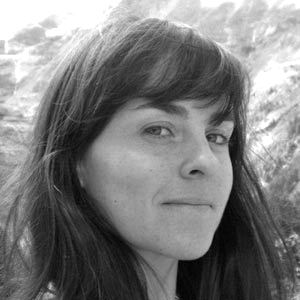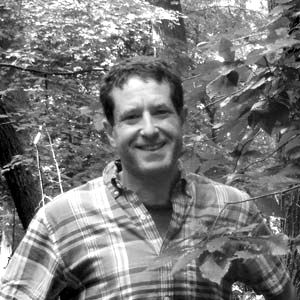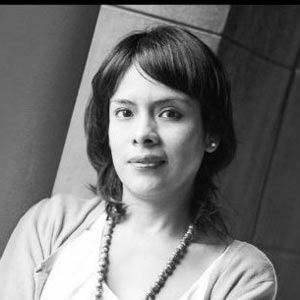The Rise of Hydroelectric Dams in the Andean Amazon: A Look at Impacts, Policy, and Finance
The Amazon River and the Andes mountain range have been intimately linked for over 10 million years. The Andes supplies the Amazon floodplain with the vast majority of its sediment and nutrients, while numerous important freshwater fish species migrate from the lowlands to the Andean foothills to spawn. Thus, any major breaks in natural connectivity could bring severe and unpredictable impacts. This is a worrying prospect as governments of the Andean Amazon region are prioritizing new hydroelectric dams as the centerpiece of long-term energy plans. A recent study revealed that over 150 dams are planned across the Andean Amazon, 60% of which would cause major breaks in connectivity across five of the six major Andean tributaries of the Amazon. Hydropower offers a reliable source of domestically produced electricity to meet rising domestic and neighboring Brazilian demand, but at what cost? Nelly, Liz, Matt, and Anjali will investigate numerous complex issues related to the proliferation of hydroelectric dams in the Andean Amazon, including ecological impacts, foreign finance, role of civil society, and policy solutions.
 Liz Kimbrough is currently a PhD student at Tulane University in the Department of Ecology and Evolutionary Biology. Liz holds Botany degree from Humboldt State University in Northern California and has conducted research in the lowland rainforests of Costa Rica and the Madre de Dios region of the Peruvian Amazon. She discovered her passion for science communication and journalism when she began interning for mongabay.com in 2012. Liz has since written over 40 articles for the site and is the writer of the “Innovation in Tropical Forest Conservation” interview series. You can now find her in New Orleans studying endophytic fungi, playing her washboard, and writing for both mongabay.com and the Global Forest Reporting Network.
Liz Kimbrough is currently a PhD student at Tulane University in the Department of Ecology and Evolutionary Biology. Liz holds Botany degree from Humboldt State University in Northern California and has conducted research in the lowland rainforests of Costa Rica and the Madre de Dios region of the Peruvian Amazon. She discovered her passion for science communication and journalism when she began interning for mongabay.com in 2012. Liz has since written over 40 articles for the site and is the writer of the “Innovation in Tropical Forest Conservation” interview series. You can now find her in New Orleans studying endophytic fungi, playing her washboard, and writing for both mongabay.com and the Global Forest Reporting Network.
 Matt Finer is a Research Specialist at Amazon Conservation Association (ACA) based in Washington DC. For the past ten years, he has been investigating the ecological impacts of the major development sectors in the Andean Amazon, which include oil and gas, logging, mining, roads, oil palm plantations, and hydroelectric dams. Matt has published a number of scientific papers about these topics and has written a number of pieces for more general audiences. He is currently in the process of launching the first major near real-time deforestation monitoring system for the region. Prior to joining ACA in late 2013, he was a Project Scientist for the Center for International Environmental Law (CIEL)’s Sustainable Loreto project and Staff Ecologist at Save America’s Forests. Matt received his Ph.D. from the School of Biological Sciences at Washington State University in 2003.
Matt Finer is a Research Specialist at Amazon Conservation Association (ACA) based in Washington DC. For the past ten years, he has been investigating the ecological impacts of the major development sectors in the Andean Amazon, which include oil and gas, logging, mining, roads, oil palm plantations, and hydroelectric dams. Matt has published a number of scientific papers about these topics and has written a number of pieces for more general audiences. He is currently in the process of launching the first major near real-time deforestation monitoring system for the region. Prior to joining ACA in late 2013, he was a Project Scientist for the Center for International Environmental Law (CIEL)’s Sustainable Loreto project and Staff Ecologist at Save America’s Forests. Matt received his Ph.D. from the School of Biological Sciences at Washington State University in 2003.
 Anjali Kumar is a tropical ecologist with interests lying at the interface of conservation biology and behavioral ecology. She has worked in pantropical ecosystems from Singapore and Malaysia to South America with the majority of her work focused on Perú and Costa Rica. Anjali earned a Ph.D. in Animal Behavior and Conservation Biology Policy from the University of Washington. Most recently, she completed a postdoctoral appointment at the Massachusetts Institute of Technology where she studied methyl mercury accumulation in bats of the Peruvian Amazon in areas where mercury is used for gold extraction in artisanal river mining. She is interested in understanding and minimizing threats to the Andes-Amazon region and is dedicated to tropical conservation.
Anjali Kumar is a tropical ecologist with interests lying at the interface of conservation biology and behavioral ecology. She has worked in pantropical ecosystems from Singapore and Malaysia to South America with the majority of her work focused on Perú and Costa Rica. Anjali earned a Ph.D. in Animal Behavior and Conservation Biology Policy from the University of Washington. Most recently, she completed a postdoctoral appointment at the Massachusetts Institute of Technology where she studied methyl mercury accumulation in bats of the Peruvian Amazon in areas where mercury is used for gold extraction in artisanal river mining. She is interested in understanding and minimizing threats to the Andes-Amazon region and is dedicated to tropical conservation.
 Reportera especializada en la cobertura de temas sociales, derechos humanos y conflictos ambientales. Es editora y fundadora de Ojo-Publico.com, medio digital especializado en periodismo de investigación, análisis de datos y nuevas narrativas digitales. Colaboradora de la BBC Mundo. Durante 10 años escribió crónicas y reportajes a profundidad en el diario El Comercio, de Perú. Es fundadora de Hacks/Hackers Lima, comunidad digital que busca promover la alianza entre periodistas y programadores. Sus textos han sido reconocidos con premios internacionales como el de la Sociedad Interamericana de Prensa (SIP, 2006) y el de periodismo científico entregado por el Instituto de las Américas y la Fundación Jack Ealy (2009), y nacionales como el de Conservación Internacional (2007) y el de Pueblos Indígenas, organizado por Oxfam (2012). Ha sido becaria de las Naciones Unidas y del Instituto de las Américas, en la Universidad de San Diego en California, y panelista en la octava Conferencia Global de Periodismo de Investigación (2013). Estudió periodismo en la Facultad de Letras y Ciencias Humanas de la Universidad Nacional Mayor de San Marcos.
Reportera especializada en la cobertura de temas sociales, derechos humanos y conflictos ambientales. Es editora y fundadora de Ojo-Publico.com, medio digital especializado en periodismo de investigación, análisis de datos y nuevas narrativas digitales. Colaboradora de la BBC Mundo. Durante 10 años escribió crónicas y reportajes a profundidad en el diario El Comercio, de Perú. Es fundadora de Hacks/Hackers Lima, comunidad digital que busca promover la alianza entre periodistas y programadores. Sus textos han sido reconocidos con premios internacionales como el de la Sociedad Interamericana de Prensa (SIP, 2006) y el de periodismo científico entregado por el Instituto de las Américas y la Fundación Jack Ealy (2009), y nacionales como el de Conservación Internacional (2007) y el de Pueblos Indígenas, organizado por Oxfam (2012). Ha sido becaria de las Naciones Unidas y del Instituto de las Américas, en la Universidad de San Diego en California, y panelista en la octava Conferencia Global de Periodismo de Investigación (2013). Estudió periodismo en la Facultad de Letras y Ciencias Humanas de la Universidad Nacional Mayor de San Marcos.